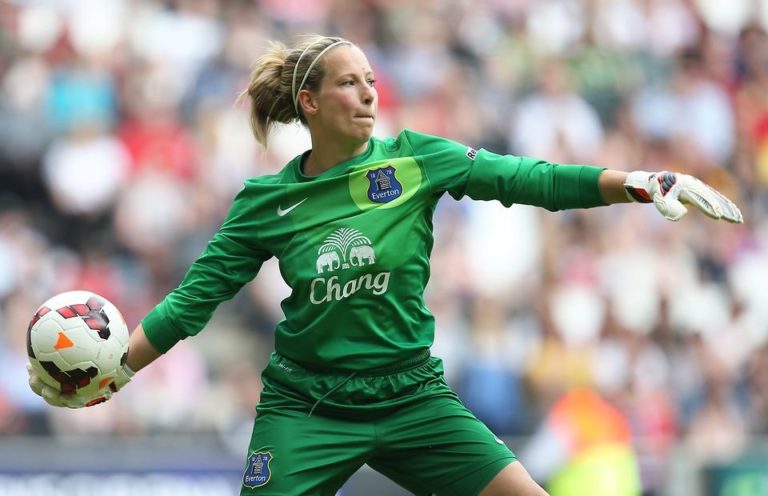

This weekend, women’s football will take part in a four-day social media boycott as clubs and organisations across England make a stand against the rising cases of online abuse.
The blackout, which will last from April 30th until May 3rd, has united English football – along with other sports including tennis and cricket – to fight for a fairer, safer space online.
Aligning with the nationwide boycott, BT Sport have launched a new campaign, titled ‘Draw the Line’, aimed to help eradicate online abuse and discrimination from the game. Former England international turned pundit Rachel Brown-Finnis is one of the key individuals involved in the new movement.
“I’m hoping that the blackout this weekend and the introduction of this policy for BT’s ‘Draw the Line’ is a line in the sand whereas from this day forwards, it [online abuse] is not tolerated,” the ex-goalkeeper told GiveMeSport Women. “Not just not tolerated but made clear of how we action against it.”
Targeted abuse on social media is a huge stain on football as a whole. Both the men’s and women’s side of the sport is suffering heightened cases of hate messaging and cyber bullying. Footballing superstar siblings Lauren and Reece James were both recently subject to racial abuse.
Other prominent figures within the sport including Lianne Sanderson have shared the abhorrent messages of racist and homophobic nature they have received as of late.
Brown-Finnis admitted that she feels social media platforms have done “minimum at best” to fight against the astonishingly high volume of online abuse. She reflected on her own experiences, which involved a number of sexist tweets targeted at her punditry presence in the men’s game.
“I’ve been sent loads of tweets like ‘what do you know about men’s football?’ And stuff like ‘you should be in the kitchen’ or ‘you should be looking after the kids’.”
The fight for a fairer world
BT Sport’s ‘Draw the Line’ campaign is a multi-million pound movement aimed to combat hate speech and discrimination. Recent YouGov research revealed that half of the population has seen abuse take place on social media over the past year, with more than one in ten – over five million people – admitting that they had received online abuse themselves.
The statistics show that women receive more online abuse than men, with one in five women experiencing targeted abuse about their appearance. Additionally, 23 percent of individuals who identify as gay or lesbian have been trolled or abused over their sexual orientation online.
Brown-Finnis reflected on the level of online abuse present in the women’s game compared to when she was playing.
“People who watched women’s football would follow you on Twitter, so generally there would be positive comments and people supporting what you did and had a genuine admiration for what you did and who you were,” she said. “Whereas now, there’s a heck of lot more coverage than when I was playing and that is only going to have a knock on effect of people’s social media profiles being much bigger than what they used to be.
“With that, unfortunately it seems kind of pro rata that the more followers you have, the more people who may be on there [social media] just to abuse you.”
Whilst players, both past and present, continue to go public with their experiences of online abuse, their peers stand alongside them in the fight for action. Now, football as a whole will unite alongside other sports in the four-day social media boycott to firmly say enough is enough.
“We are a collective,” Brown-Finnis said of the women’s football community. “Over the last 15-20 years, we have collectively got women’s football to the profile that it has right now. Past players like myself, present players and future players are all a part of that and we are absolutely like a family.”
BT’s #DrawTheLine campaign will see BT Sport highlight the issue of online abuse and introduce an anti-online abuse policy, deleting, blocking or reporting hate and abuse on its channels. For more information visit bt.com/drawtheline